Review round-up: guitar synth pedals
Transform your electric guitar into a synthesizer with these offerings from Keeley, Electro-Harmonix, Pigtronix and Seymour Duncan
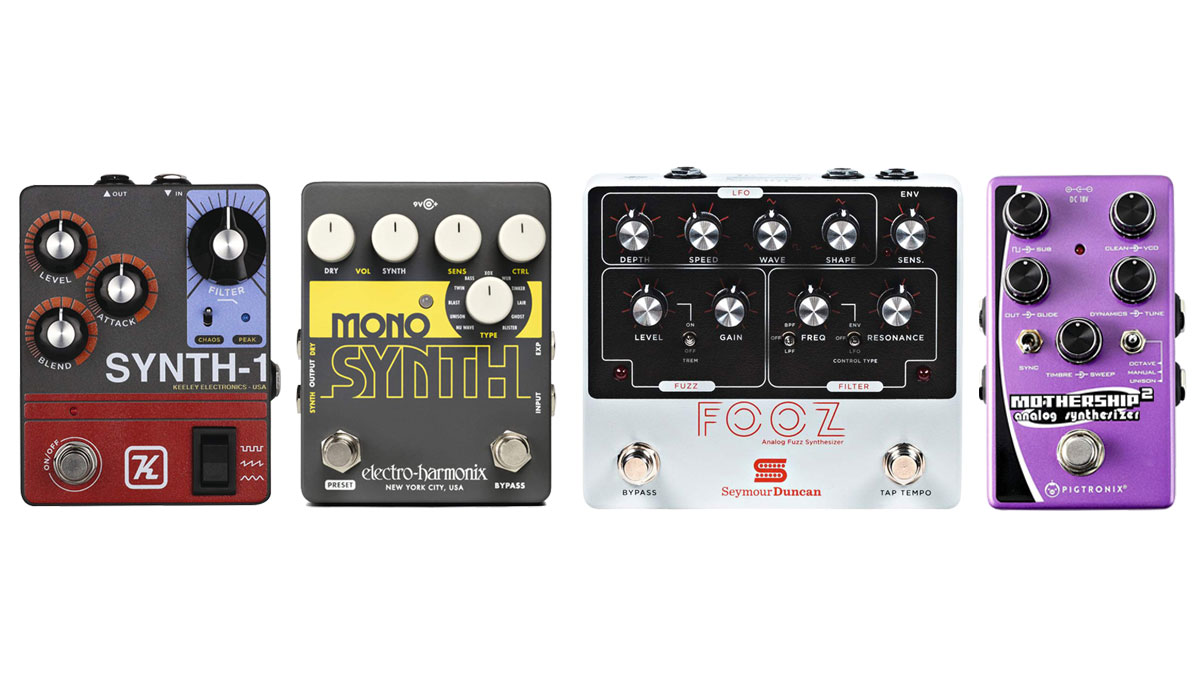
Analogue synthesis has, somewhat rightly, a fearsome reputation for complexity, with terms like LFO and VCO thrown around in abandon.
Until recently, guitarists had to learn the keyboard before being able to utilise synthesiser tones, or resort to weird and wonderful gadgets like the Roland V Guitars, or external hex pickups.
Now, however, advances in tech have put synthesis in the hands of your average axe-slinger, with no external gubbins or jargon required... or so the manufacturers claim.
We thought we’d put this to the test, so we’ve got four of the best analogue guitar synth pedals together to see if we can wrap our luddite minds around them. Synthtopia or epic fail? Let’s find out...
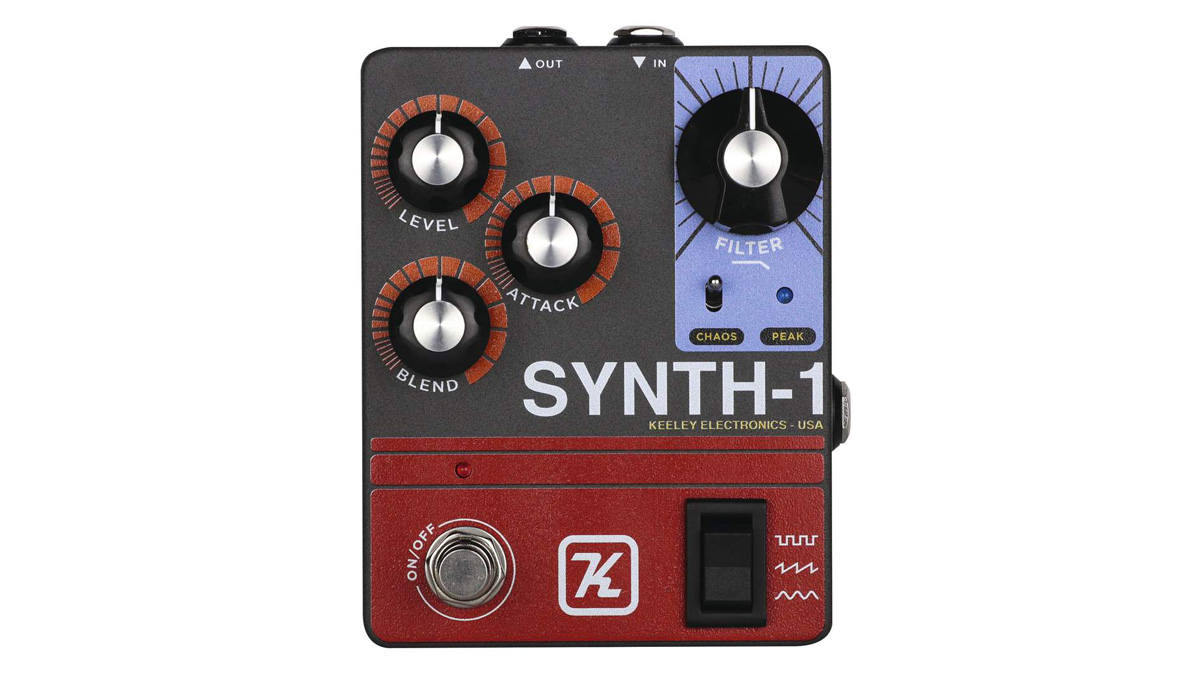
Keeley Synth-1
Inspired by the legendary Boss Slow Gear, the Synth-1 is an envelope filter with some added synth goodness.
The ‘chaos’ switch adds octave artefacts and overtones - which leads us to assume it’s probably a feedback circuit of some kind – while the filter control is a band-pass for the wave generator. There’s options for triangle, sine and square waves, and also for using an expression pedal, for almost wah-like control of the filter.
In terms of tone, it’s thick, fuzzy and particularly tasty in the triangle mode with a slow attack. With the blend all the way up, we could see how this could become a trusted studio tool.
4 out of 5
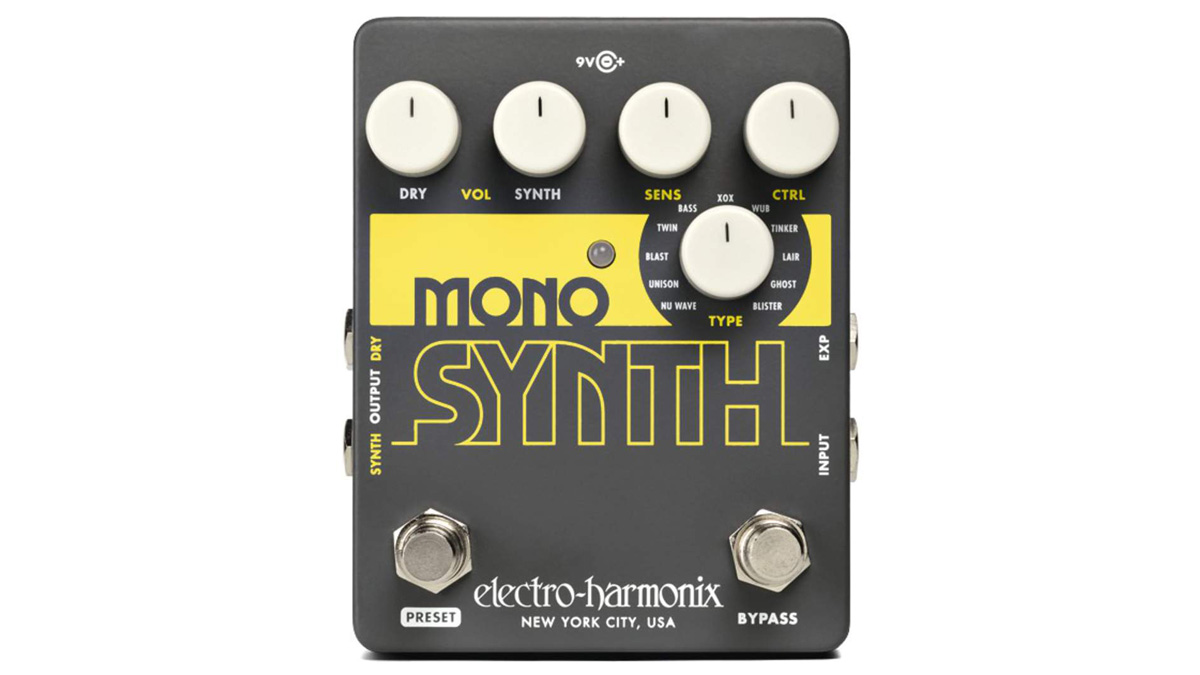
Electro-Harmonix Mono Synth
With a reasonably compact form factor and functional good looks, the EHX Mono Synth definitely has the cool points going for it even before we plug it in.
From then on it’s hard to get our jaw off the floor. The ‘Nu Wave’ patch is pure Gary Numan, and has us Googling the tab for Cars; ‘Unison’ sounds like giant mechs battling over Tokyo; ‘XOX’ is a RATM-style bass synth envelope; ‘Ghost’ is organ-like; and ‘Tinker’ slightly chiptune-esque.
Throughout, the tracking is not bad at all, so long as it’s the first pedal in the chain; certainly more than good enough for guitar or bass live.
5 out of 5
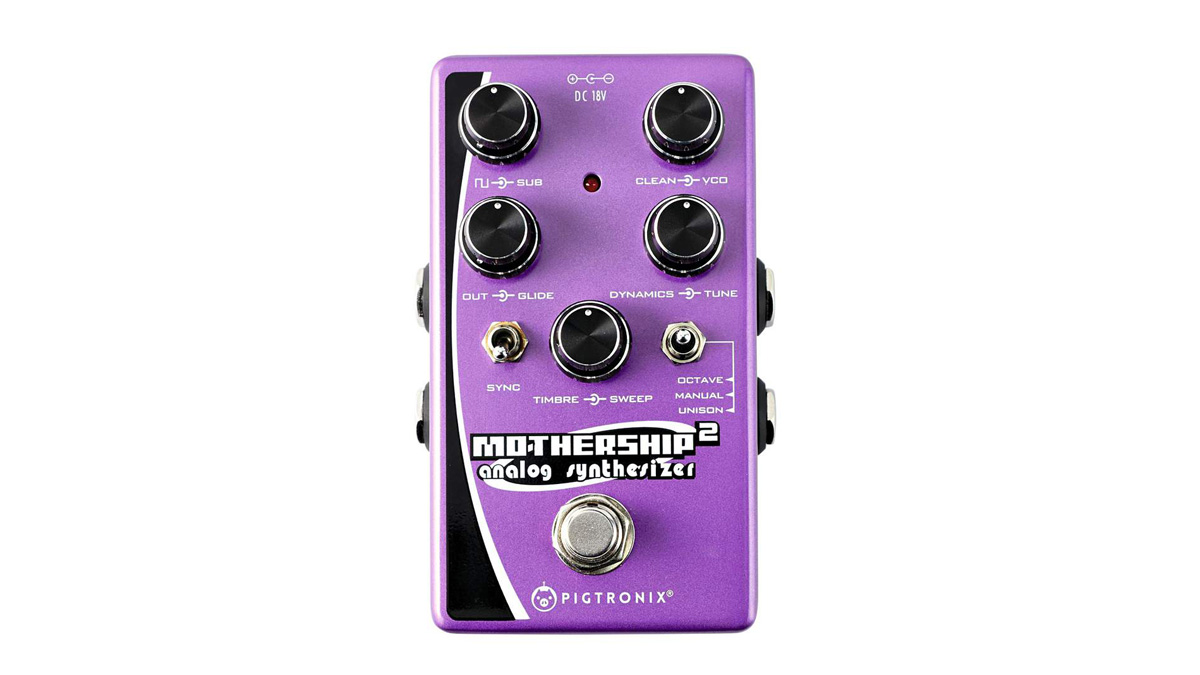
Pigtronix Mothership 2
In terms of pure tracking, the Pigtronix is a staggering achievement.
We spent a few minutes trying to wrong-foot it with bends and detunes by pushing the headstock and it reacted perfectly, so long as we stuck to single notes and not chords. It combines square, triangle and sub octave sine wave oscillators into a single heavily-customisable synth sound, with extra expression input and a dedicated sub output.
We had the most fun in the octave and unison modes, but on the whole it’s easy to find good synth tones from this unit, even if the number of controls on the front is initially a bit overwhelming.
4 out of 5
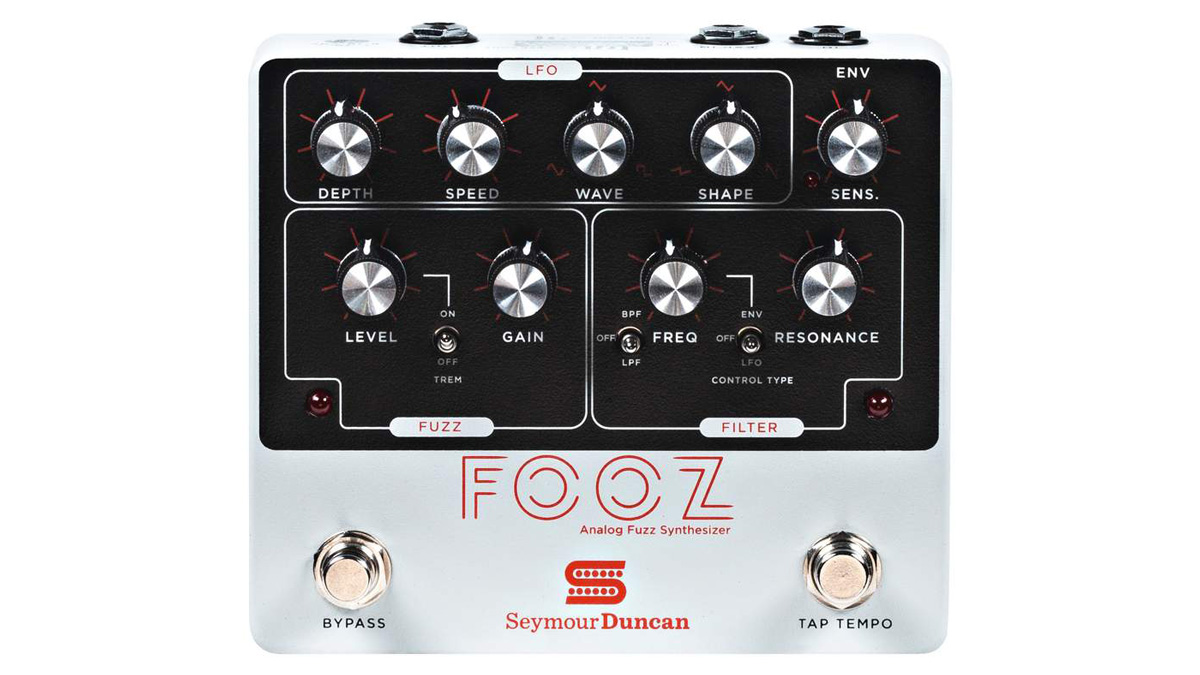
Seymour Duncan Fooz
Our rule of thumb with gear is that we should be able to roughly work it out without the aid of the manual - after all, the intuitiveness of the guitar is half the fun, right?
With the great power of the Fooz synth, fuzz, trem, filter and all, comes a complexity that does require some reading. However, once it’s dialled in it serves well as a filter and envelope follower with more than your usual array of tweakable parameters.
Though it does do the auto-wah thing well, that’s essentially the one core sound on offer, even if it can be altered via the filter, trem, fuzz and wave- shape control on the LFO.
3.5 out of 5

Alex Lynham is a gear obsessive who's been collecting and building modern and vintage equipment since he got his first Saturday job. Besides reviewing countless pedals for Total Guitar, he's written guides on how to build your first pedal, how to build a tube amp from a kit, and briefly went viral when he released a glitch delay pedal, the Atom Smasher.
“A pedal that sings with harmonic richness and blooming touch response”: Tone King offers up boutique tube amp tones for your pedalboard with the Imperial Preamp
“Each and every unit is perfectly dialled in to the 'sweet spot' that can be so elusive to find in vintage pedals”: Pigtronix’s Gas Giant is a high-gain fuzz pedal with a FET-driven onboard noise gate
“A pedal that sings with harmonic richness and blooming touch response”: Tone King offers up boutique tube amp tones for your pedalboard with the Imperial Preamp
“Each and every unit is perfectly dialled in to the 'sweet spot' that can be so elusive to find in vintage pedals”: Pigtronix’s Gas Giant is a high-gain fuzz pedal with a FET-driven onboard noise gate











